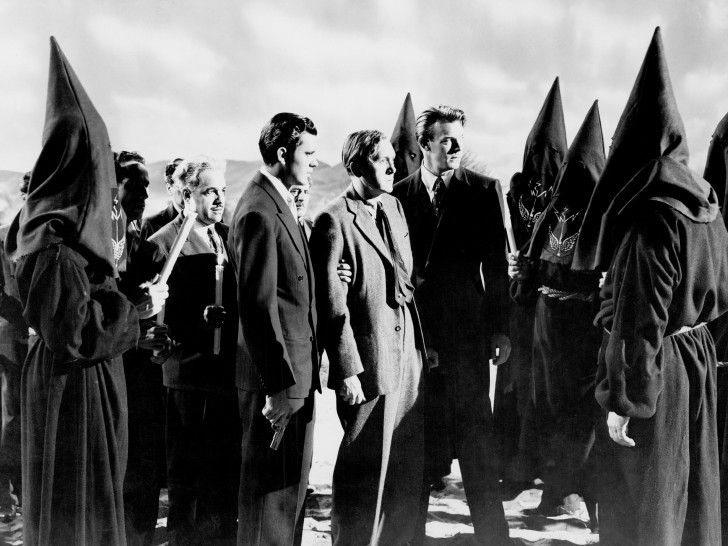
The Leopard Man
The Ghost Ship
As the third and final film directed by Jacques Tourneur for the legendary Val Lewton, The Leopard Man forges a striking trilogy by profoundly extending and responding to the earlier two films, Cat People and I Walked With a Zombie. Besides the deceptively lurid titles imposed upon Lewton by RKO, the three films share a similar tone and theme, each offering brooding and melancholy fables meditating on outsiderness, mortality and the specter of an inexorable yet arbitrary fate. These are, of course, major themes that resonate across the rest of Lewton’s RKO productions and Tourneur’s later films. In The Leopard Man, however, these themes are given a new dimension by a radical narrative strategy that deliberately denies the spectator any fixed character identification and profoundly reorients the terms of the supernatural mystery genre so successfully invented by the previous two Tourneur-Lewton films. The critical distance defined by The Leopard Man from the earlier films also marked an important departure for Tourneur, announcing the pointed-yet-understated engagement with genre and narrative that would become one of the signatures of his deeply nuanced cinema.
Unavailable for many years and now seated in the canon of the works of producer Val Lewton a bit insecurely (because it has even fewer supernatural elements than director Mark Robson has defenders), The Ghost Ship might be called the most characteristic Lewton film. All Lewton is in it: quiet, almost over-purified performances; a liberal-humanist attentiveness to women, minorities and the disabled; the atmosphere of brooding disquiet that pervades a universe made to seem real by a few well-chosen details of writing and production design; scenes of suffocating suspense that emerge from inside a melancholy dreariness. As for Mark Robson, it could be argued that of the three main Lewton directors, he (rather than Jacques Tourneur or Robert Wise) is the most suited to realizing Lewton’s vision, because his own talent as a director, as his post-Lewton films confirm, lies in a pragmatic and impersonal acceptance of whatever materials the script and the production place before him. As a result, the weapons in The Ghost Ship (scalpel, hook, chain, spike) look truly threatening, and the actors, in particular Russell Wade as the beleaguered third officer and Richard Dix as the authority-maddened captain, take on an almost physical independence from the world of the film. – Chris Fujiwara










































